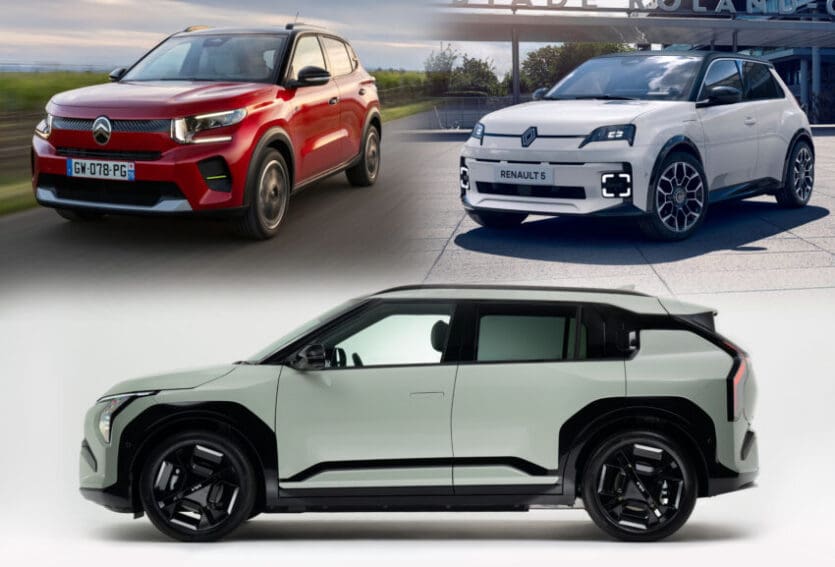
Ever-evolving EVs are bringing affordable innovation to the mass market
The astonishing speed at which electric vehicle technology is developing is making an EV the easy choice for a rapidly growing number of drivers, believes Tom Carr, managing director at automotive consultancy PHM Group
The automotive industry is at a pivotal moment, with the electric vehicle market undergoing significant changes. This shift is largely driven by advancements in technology, changing consumer preferences, and an influx of new competitors.
Affordable and practical: the new face of EVs
The electric vehicle market has traditionally been dominated by high-end, flagship models. These vehicles, while technologically advanced, often came with a hefty price tag, making them accessible only to a limited audience. However, the latest trends indicate a shift towards more affordable, volume-focused offerings. This change is not only making EVs more accessible to a broader consumer base but is also driving significant improvements in cost and range.
One of the key developments in this new wave of EVs is the introduction of models like the Kia EV3, which exemplifies the trend towards affordability without compromising on range. These vehicles, including compact SUVs with batteries ranging from 70 to 80 kWh, are designed to offer substantial range at a more accessible price point. This marks a significant departure from earlier models, which typically featured smaller batteries (50 – 60 kWh) and were primarily suited for short-distance urban driving.
The UK new car market rose by 2.5 per cent in July, delivering two years of consecutive growth, according to the latest figures from the Society of Motor Manufacturers and Traders (SMMT). With almost 150,000 new cars reaching the road, it was the best performance for July since 2020. Electrified vehicle demand outpaced the overall market, with EVs accounting for a significant portion of new registrations. Underscoring growing consumer acceptance and demand for electric vehicles, it also shows the consumer appetite for more entry-level EVs vs premium makers.
Technological advancements driving change
The ability to reduce costs while maintaining performance is a critical factor in this evolution from internal combustion to electric power. At PHM we’ve seen manufacturers achieve this by focusing on producing larger volumes of EVs, which allows them to benefit from economies of scale by spreading development and production costs over a larger number of units. Battery technology has seen remarkable advancements, leading to cheaper and more efficient batteries. According to RMI’s recently published report, X-Change: Batteries, battery sales have been growing exponentially, doubling every two to three years over the past three decades. This rapid growth is coupled with a dramatic decrease in costs and a steady increase in energy density. Over the past 30 years, battery costs have plummeted by an unbelievable 99 per cent, while the energy density of top-tier cells has increased five-fold, making batteries the fastest-improving clean energy technology.
Efficiency is another area where modern EVs are excelling. Improvements in aerodynamics, battery management, and powertrain efficiency mean that today’s EVs can travel further on a single charge. Advances in motor efficiency, weight reduction, and overall vehicle design are contributing to these gains, too, making EVs more practical for everyday use. The increasing number of electric models on the market is also driving down prices through competition. The entry of Chinese brands like BYD and MG has intensified this competition, forcing established European manufacturers to rethink their pricing strategies. This increased competition benefits consumers by leading to lower prices and continuous innovation, however it’s worth keeping in mind that this will also come with a huge upfront shift in things like aftersales and warranty issues in a new market.
Beyond cost and efficiency, the EV market is also benefiting from advancements in charging technology. Faster charging speeds and more widespread charging infrastructure are addressing one of the main concerns of potential EV buyers: range anxiety. While the team at PHM are EV natives, we are constantly reminded that our clients’ clients (customers of OEMs) are still worried about range. Innovations in battery management systems are enabling quicker and more effective charging, making long-distance travel more feasible. These technological advancements are not only enhancing the practicality of EVs but also contributing to their growing popularity among consumers.
Addressing market challenges
Despite these positive developments, the EV market faces challenges. Concerns about stalling sales have emerged, as some potential buyers remain hesitant due to perceived limitations in range, cost, and infrastructure. However, the introduction of more affordable models is expected to reverse this trend. Manufacturers are leveraging their experience to create compact, efficient, and cost-effective EVs without compromising performance. This iterative approach ensures that each new generation of vehicles is better than the last, incorporating the latest technological advancements and consumer feedback.
With zero-emission vehicles mandated to comprise a minimum of 22 per cent of each brand’s new car registrations over the full year, the pace of transition needs to increase significantly. The latest industry outlook suggests that such a surge is looking increasingly unlikely given the current market conditions. While the outlook anticipates overall market growth in 2024, expectations have been revised downwards, reflecting the need for continued incentives and infrastructure improvements to support the transition. It is evident, therefore, that the sector is resilient amid economic turbulence, yet greater support for consumers is crucial to accelerate the pace of transition. Although the number of people buying and driving EVs is increasing, the pace of change must quicken to meet the UK’s climate change ambitions and regulatory targets. Action on incentives and infrastructure is critical to support this growth, we feel.
The evolution of the EV market towards more affordable and efficient vehicles represents a significant step forward in the journey towards sustainable transportation. The combination of reduced costs, improved technology, and increased competition is making EVs a viable option for a broader segment of the population. As these trends continue, we can expect to see a more rapid adoption of electric cars, ultimately contributing to a greener and more sustainable future. The future of personal transportation is electric, and the current wave of innovation is making it more accessible than ever before. By focusing on volume and affordability, manufacturers are not only meeting the demands of today’s consumers but also paving the way for a more sustainable tomorrow.





